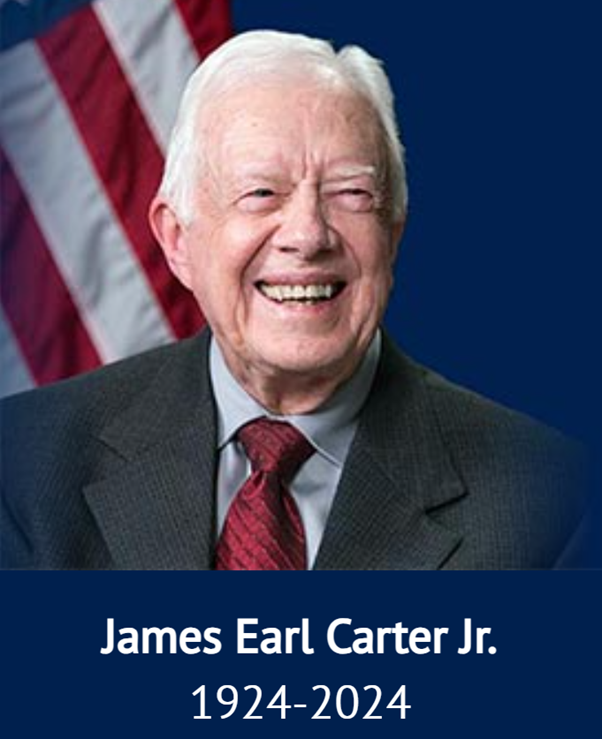The passing of U.S. President Jimmy Carter marks a moment to reflect on the life of a remarkable individual and the style of leadership he embodied—one defined not by the pursuit of power or profit, but by an unwavering commitment to human dignity, peace, and justice. I had the privilege of knowing President Carter first as a young butler in his White House in the late 1970s, and later as Vice President of Peace Programs at The Carter Center, the institution he and his wife Rosalynn founded after leaving the presidency. He often joked that being Vice President of Peace Programs would be the best job title I would ever have—and, in many ways, he was right.
President Carter’s brilliance was matched by his boundless compassion. He was perpetually curious, always asking probing questions—whether about the remaining cases of guinea worm disease or the details of elections in remote corners of the globe. While his engineer’s mind sought practical solutions, his deep Christian faith fueled his tireless drive to serve others and address some of the world’s most pressing challenges.
Growing up in the segregated South during the Jim Crow era, Carter transcended the prejudices of his time to become a champion of human rights and equality. As president, he made decisions that, though often underappreciated at the time, are now recognized as visionary. From the Camp David Accords to the Panama Canal Treaty and the SALT II Agreement, his leadership demonstrated an unwavering commitment to diplomacy and peace. Long before environmental conservation became a global priority, Carter championed sustainability, establishing national parks and even installing solar panels on the roof of the White House.
President Carter’s leadership was also tested during the Iran hostage crisis, a defining moment of his presidency. Despite immense political pressure and personal criticism, he remained resolute in his commitment to bringing all the hostages home alive. His tireless diplomatic efforts eventually achieved that goal, demonstrating his deep sense of responsibility for every life entrusted to his care. While the crisis overshadowed other achievements at the time, history has shown the moral courage Carter exhibited in refusing to resort to actions that could have risked innocent lives.
After his presidency, Carter brought sharp analysis and deep empathy to some of the world’s most intractable conflicts. His book, Palestine: Peace Not Apartheid, revealed his willingness to confront difficult truths in pursuit of peace, even when it sparked controversy. This courage to address contentious issues reflected his core belief that lasting peace requires honest dialogue. Today, as the world faces challenges ranging from wars in Ukraine and the Middle East to escalating tensions elsewhere, Carter’s leadership style—a blend of moral courage, strategic diplomacy, and relentless optimism—serves as a timeless example.
The reevaluation of Carter’s legacy is only just beginning, with recent critical biographies shedding new light on the depth of his achievements. Far from being limited to his presidency, Carter’s impact extended to countless lives through his post-presidential work. Devoting himself entirely to the causes he believed in, he focused on eradicating diseases, fostering peace, and building homes for those in need. He never sought recognition; he pursued results. His work through The Carter Center touched communities across the globe and transformed lives in lasting ways.
Equally inspiring was the partnership he shared with Rosalynn, his wife of seven decades. Their relationship was a testament to love and shared purpose, as they worked side by side to make the world a better place. Their bond was an extraordinary source of strength and inspiration to all who knew them.
In an era when public life often rewards division and self-interest, President Carter’s legacy reminds us of the true essence of leadership: a commitment to integrity, compassion, justice, and the courage to do what is right. His life was a profound testament to the power of vision, the importance of peace and justice, and an unwavering dedication to building a better world for all.
Rest in peace, Mr. President. The world is better for your life of service, compassion, and humanity.


